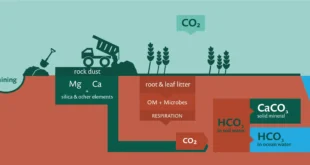- The Market-Based Economic Dispatch (MBED) mechanism envisages centralised scheduling for dispatching the entire annual electricity consumption of around 1,400 billion units.
- MBED mechanism proposes a centralised scheduling of power dispatches, both inter-state and intra-state.
- It will mark a clear shift from a decentralised model which is backed by Electricity Act, 2003.
- MBED is a way forward to deepen power markets in line with the Centre’s ‘One Nation, One Grid, One Frequency, One Price’ formula.
- It will ensure that the cheapest electricity generating resources across the country are supplied to meet the overall system demand and will therefore be a win-win for both the distribution companies and the generators and result in savings for consumers.
- The implementation of the first phase of MBED was earlier planned to start with effect from April 1, 2022.
- However, it was put off for later in 2022, the date for which is yet to be announced.
Electricity Act 2003
- The Electricity Act, 2003 is the central law regulating the electricity sector.
- The Act provides for Electricity Regulatory Commissions at both the central and state levels i.e., Central Electricity Regulatory Commission (CERC)and State Electricity Regulatory Commissions (SERCs).
Functions of these Commissions include:
- Regulating and determining tariff
- Issuing licenses for transmission
- Distribution, and electricity trading
- Adjudicating upon disputes, within their respective jurisdiction.
Electricity (Amendment) Bill 2022
The Electricity Amendment Bill, 2022 aims at giving multiple players open access to distribution networks of power suppliers and also allowing consumers to choose any service provider.
The Bill seeks to amend Electricity Act 2003:
- To facilitate the use of distribution networks by all licensees, under provisions of non-discriminatory “open access” with the objective of enabling competition, enhancing efficiency of distribution licensees for improving services to consumers and ensuring sustainability of the power sector.
- To facilitate non-discriminatory open access to the distribution network of a distribution licensee.
- To make provisions vis-à-vis graded revision in tariff over a year besides mandatory fixing of maximum ceiling and minimum tariff by the appropriate commission.
- To convert the rate of punishment from imprisonment or fine to fine.
- To strengthen functions that will be discharged by the regulators.
Way Forward
- Being a subject of Concurrent List of Indian Constitution, recommendations from states should be taken into consideration for effective implementation of the provisions of the bill.
- Security Constrained Economic Dispatch (SCED), an algorithm developed by the NLDC can be the potential solution, which is aimed at assisting regulators in making informed calls on scheduling decisions on a nationwide basis.
SOURCE: THE HINDU,THE ECONOMIC TIMES,MINT
 Chinmaya IAS Academy – Current Affairs Chinmaya IAS Academy – Current Affairs
Chinmaya IAS Academy – Current Affairs Chinmaya IAS Academy – Current Affairs



